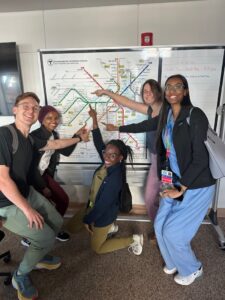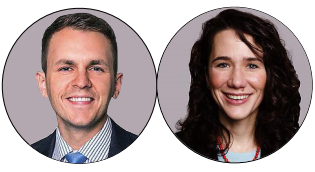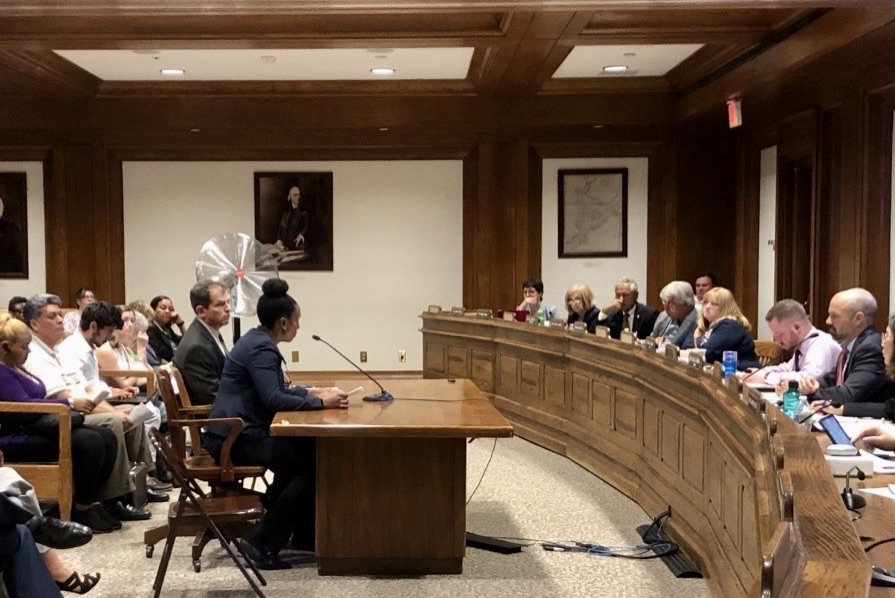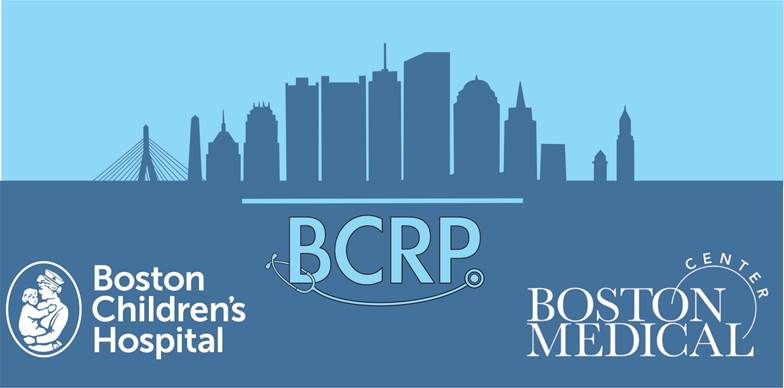Examples of Resident Advocacy
Research, Advocacy, and Policy Sessions for Leadership, Equity, and Advocacy (LEAD) Residents

Leaders in Equity and Advocacy (LEAD) residents engage in Curricular Afternoons, also called Research, Advocacy and Policy (RAP) sessions, throughout residency with the entire LEAD cohort. These include a didactic curriculum spanning issues such as racial capitalism, reproductive liberation, and disability justice as well as interactive sessions organized by residents. In the last year, these sessions have included trips to the Harvard Art Museum to engage in perspective taking, learning about transportation justice at the MBTA Offices, and learning about alternatives to carceral models of healthcare at Lucy Parsons Bookstore. RAP sessions also have involved working with the Boston Children’s Office of Government Relations staff to meet with staffers in the offices of Senator Elizabeth Warren and Senator Ed Markey to advocate for legislation that would strengthen the NIH’s commitment to pediatric research.
Street Cred

One of every five children in the United States is growing up poor, which means America’s future faces increased risk of preventable disease, poor school performance, and loss of future economic productivity. In response, residents Michael Hole and Lucy Marcil teamed up and founded StreetCred, a social impact organization highlighted by the Boston Globe, Forbes Magazine and NPR. StreetCred is building one-stop shops of anti-poverty tools to help low-income families visiting pediatric clinics access basic resources and build assets while they wait on their doctor. So far this year, StreetCred has prepared tax returns and led voter registration for patients’ families, ultimately returning more than 8.5 million dollars to families as of 2020. In the coming year, StreetCred will also help families apply for SNAP (formerly Food Stamps), Head Start (promotes school readiness), and FAFSA (determines financial aid eligibility for college), all before they leave the doctor’s office. StreetCred also offers individual financial coaching including developing and sticking to a budget, opening a bank account, building credit and saving for a car or a home. They envision a free, one-stop shop of anti-poverty tools for America’s most vulnerable families raising children. To-date, StreetCred is financially supported by BMC’s Department of Pediatrics, BMC’s Philanthropic Trust, BMC’s Committee on Residents and Interns, a Boston Children’s Hospital’s Fred Lovejoy Award, the American Academy of Pediatrics, and several private donors. Six BCRP residents devoted their protected advocacy time to StreetCred during the 2016 tax season.
Legislative Advocacy
We are fortunate to be in Boston, the state capital of Massachusetts, which affords residents the opportunity to easily engage in legislative advocacy. The Massachusetts State House is just off the Boston Common and a short T ride away from both of our hospitals. We are grateful to have very engaged local, state, and national politicians, who support advocacy efforts.

Some examples of resident advocacy accomplishments:
- Worked to include a diverse set of Reach Out and Read books distributed in the pediatric clinics including books in multiple languages, books featuring children of color and queer characters.
- Worked with a local charter middle school on a sleep hygiene project. Students with daytime sleepiness or behavioral issues were identified by the teaching staff. Each student received a wrist band accelerometer (FitBit) to track sleep and activity, and in monthly visits we reviewed the data together and did counseling on healthy sleep habits.
- Partnered with the Boston Children’s Community Asthma Initiative to target health related social needs to improve asthma outcomes in this vulnerable population of low-income families with chronically sick children. We did this by implementing a standardized social screener to better target family’s needs as well as increasing access to federal poverty relief programs in partnership with StreetCred.
- Testified at Boston City Council to advocate for safer streets for cycling. Vision and views were featured in Go Boston 2030 campaign to guide the city’s next steps in transportation planning. Developed a research/advocacy/policy session addressing food and transportation as medicine.
- Founded the “CIR Center for Social Determinants of Health” at Boston Medical Center, a resident-led, interdisciplinary group of providers whose shared mission is to address disparities in healthcare by improving awareness of the social determinants of health.
- Founded the Advocacy through Policy residency group to partner with the Boston Children’s Hospital Office of Government Affairs in advocating for policies to benefit child health.
- Worked with a community health center to improve travel screening for immigrant patients.
- Received a Picker Gold Challenge Grant to support the development of patient care initiatives and best practices for “Improving Family-Centered Care for Substance Exposed Newborns and their Mothers”
- Started a resident interest group to support urban families around the impact of community gun violence, including a fundraiser to support the community organization L.I.P.S.T.I.C.K.
- Designed and implemented a quality improvement project on the BMC pediatric service to facilitate family centered rounds for families whose primary language is not English.
- Presented a workshop on social determinants of health screening in pediatric clinic at a national meeting, in collaboration with several other residency programs.
- Received an International Elective Grant from the American Academy of Pediatrics to support work on newborn care in Kenya.
- Started a project to bring home visits to children in the community as an alternative to the traditional primary care system.
- Numerous residents have published articles in medical journals and public news sources on poverty and health, health disparities, and advocacy training.



